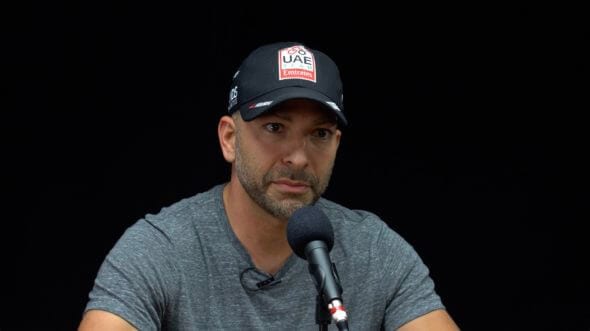

#SLEEP EXPERT PETE BILS HOW TO#
There’s an art and science to critical thinking and how to conduct yourself. The purpose of comments on our site is to expand knowledge, engage in thoughtful discussion, and learn more from readers.Ĭriticism and skepticism can be far more useful than praise and unflinching belief. Needed to measure patients while sleeping, not aware: then results took offĬould sleep disruption be a biomarker of dementia, or even an underlying cause? … Ĭomments are welcomed and encouraged.Noticed that different pathologies hit sleep centers, others spared until late in process.Walker was studying the brainwave patterns in people with dementia but not getting anywhere.
#SLEEP EXPERT PETE BILS PLUS#
Plus the fact that science had not been able to crack this nut, it was one of the last great remaining scientific mysteries.” Sleep and Alzheimer’s disease, and the 4 pillars of sleep “So it was, for me, this perfect collision of a fascination in an innate biological problem, and universal behavior conserved across evolution, together with the fact that we did it for a third of our lives.
#SLEEP EXPERT PETE BILS CRACKED#
Brilliant minds haven’t yet cracked it, so Matthew thought the topic would sustain a whole career.“We sleep to cure sleepiness” is not an answer, we can’t seem to unravel the mystery.Sleep accounts for ~1/3 of our lives – we understand eating, drinking, and mating, but not sleep.Sleep is a key example: state that happens to almost every living creature every 24 hours.Always interested in states of consciousness, anesthesia, hypnotism, brain switching between mental states.How did he develop his passion for sleep science? Went to Harvard for faculty position in psychiatry, there for 7 years – did not like winter or combative/competitive environment at Harvard.at Newcastle University and his research was funded by the Medical Research Council in London Instead, he got undergrad in neuroscience at University of Nottingham.Started med school in UK at age 18 but professor told him he was a scientist, not doctor (focused on questions, not answers).Δ Matthew’s background and interest in sleep Subscribe on: APPLE PODCASTS | RSS | GOOGLE | OVERCAST | STITCHER non-REM sleep, and the impact that bad sleep habits can have specifically on those sleep stages. We also discuss the different and important roles of REM vs. We also get into the dangers of chronic sleep deprivation, such as the development of dementia, and the more acute dangers of sleep deprivation like fatal car crashes which are most often caused by drowsy driving. In part 1 of this 3 part series, Matthew Walker, professor of neuroscience at UC Berkeley and expert on sleep, describes the different stages, and cycles, of sleep, including what he calls the 4 pillars of sleep, and how they contribute to memory consolidation and numerous important pathways to mental health. (September 7, 2020) AMA #3: Fasting, gut health, blue light, caffeine, REM sleep, and more.(August 31, 2020) Sleep & Covid-19: Sleep and immune function, chronotypes, and hygiene tips.(October 28, 2019) AMA #2: short sleep mutants, optimal sleep environment, & sleep apnea.(June 17, 2019) AMA #1: Strategies for sleeping more and sleeping better.(April 15, 2019) Part III of III: The penetrating effects of poor sleep from metabolism to genetics.(April 8, 2019) Part II of III: Heart disease, cancer, sexual function, and sleep disruption.(April 1, 2019) Part I of III: Dangers of poor sleep, Alzheimer’s risk, mental health, and memory.Check out more content with sleep expert, Matthew Walker, Ph.D.:


 0 kommentar(er)
0 kommentar(er)
